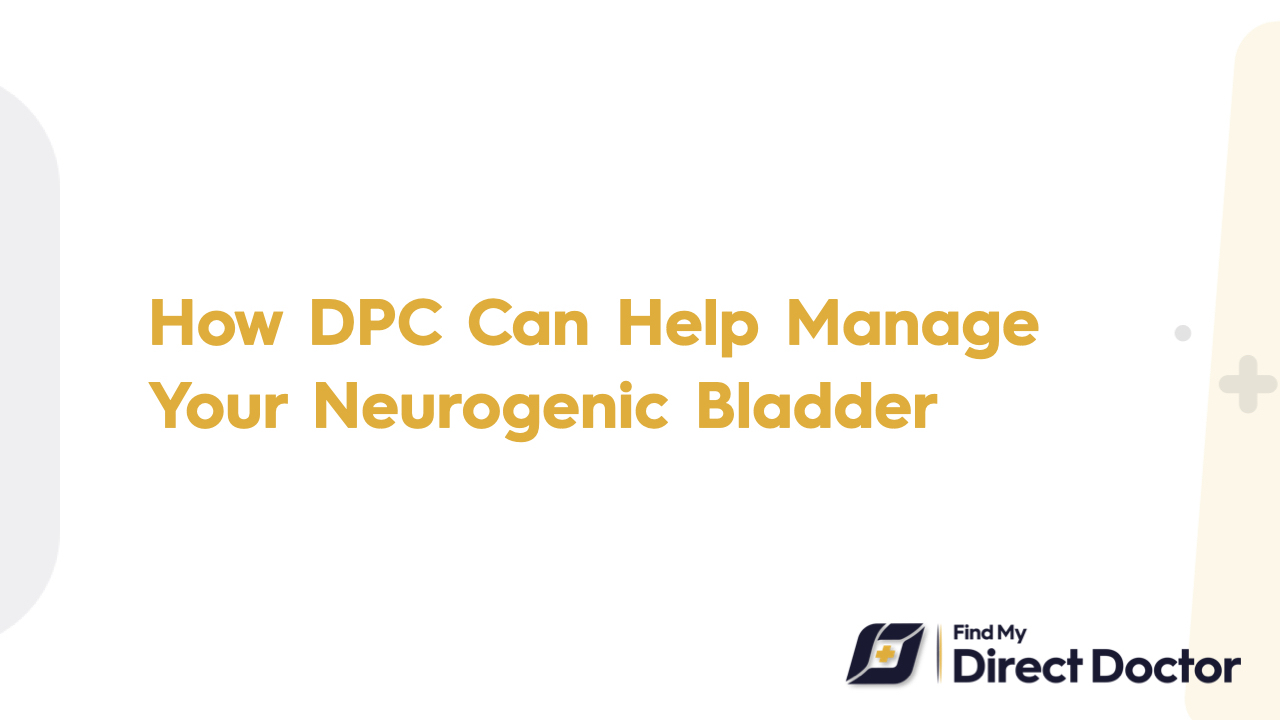



A disorder known as neurogenic bladder occurs when nerve injury prevents the bladder from functioning normally. Multiple sclerosis, neurological disorders, spinal cord injuries, and other underlying reasons can all contribute to this. The inability to completely empty the bladder, incontinence, trouble starting to urinate, and frequent urination are all signs of a neurogenic bladder. Urinary retention is a condition that certain people may have, and it can cause kidney damage or infections. The degree and location of nerve injury affect the kind and intensity of symptoms.

A specialized and easily accessible method of treating neurogenic bladder is provided by Direct Primary Care (DPC). This concept makes it simple for patients to get in touch with their primary care physician to talk about their concerns, get guidance, and monitor their health over time. Regular monitoring, prompt treatment plan modifications, and, if required, care coordination with specialists such as neurologists or urologists are all made possible by DPC. A thorough approach to managing the mental and physical elements of living with a chronic ailment like neurogenic bladder is ensured by the ongoing interaction between the patient and their care provider.
For patients with neurogenic bladder, DPC offers a number of advantages, most notably the provision of individualized and consistent therapy. Patients can promptly treat any new or worsening symptoms with primary care doctors when they are more easily accessible, avoiding potential problems including kidney damage or urinary tract infections. With regular check-ins and advice on lifestyle changes or therapies that can enhance bladder function, the model also encourages a more proactive and preventive approach. DPC places a strong emphasis on providing patients with emotional support as well as physical health support as they navigate the difficulties associated with neurogenic bladder.
The treatment of neurogenic bladder in a DPC model is customized to meet the specific requirements and symptoms of each patient. Together, patients and providers develop a customized treatment plan that may involve medication, lifestyle changes, and methods to enhance bladder control. Frequent follow-ups guarantee that the management strategy changes in response to the patient's development and any emerging issues. More targeted care is made possible by this individualized approach, which also gives patients the freedom to deal with problems as they come up and improves their quality of life. Patients can freely discuss their issues in a supportive setting at DPC and get the continuous care they require.
Previous Post